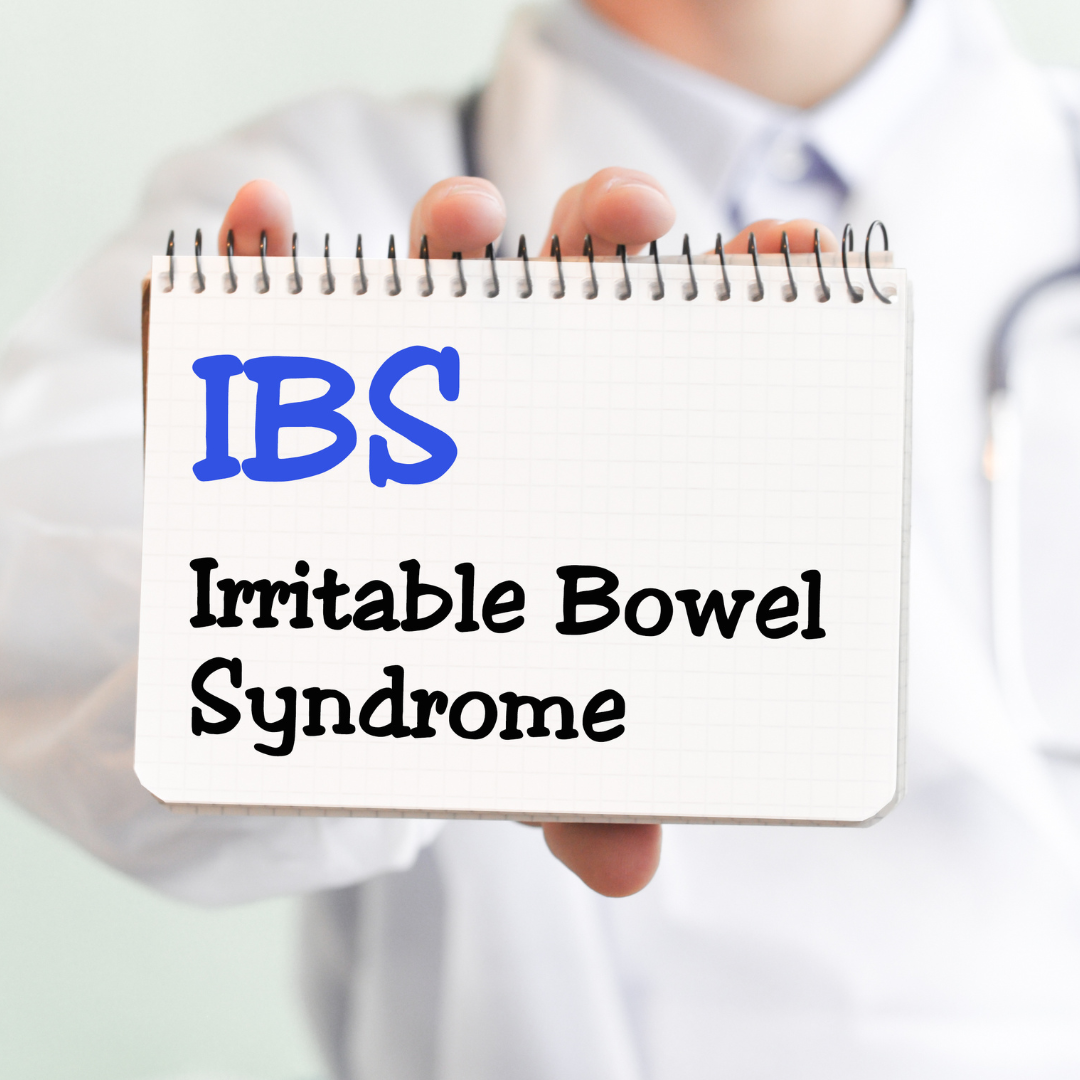
April is IBS awareness month. It’s an important time to understand and spread the word about this common digestive condition. It affects 1 in 5 adults in the U.S., with women being twice as likely as men to develop it. So, what exactly is Irritable Bowel Syndrome, or IBS? Let’s take a look at the basics of this condition and why it’s so important to raise awareness.
To sign up for my newsletter and never miss a gut-health update, click here.
What is Inflammatory Bowel Syndrome?
IBS stands for Irritable Bowel Syndrome, which is a functional gastrointestinal disorder that affects your large intestine. This disorder causes abdominal pain and cramping, irregular bowel movements (either constipation or diarrhea), bloating, gas, and other symptoms. They can can range from mild to severe. The exact causes of IBS are unknown but can be triggered by stress and certain foods.
What is the Difference Between IBS and IBD?
I’m commonly asked to differentiate between IBS and IBD in my practice, and although these diseases sound similar and may have overlapping symptoms, they’re very different in ways of the mechanism of action, damage to the bowel, long-term complications, and therapy. It is possible to have both diseases, and I see this regularly in my practice. I find that the longer someone has battled digestive illness, the more likely they are to suffer from IBS on top of their underlying disease. It’s important, however, to differentiate between IBS and IBD in patients suffering from inflammatory bowel disease. IBS symptoms are common and are not associated with inflammation. Therefore patients may mistake their IBS for an inflammatory flare.
The two main types of inflammatory bowel diseases (IBD) are Crohn’s disease and Ulcerative Colitis. IBD is an autoimmune disorder, where the immune system mistakenly attacks healthy tissue in the digestive tract. Symptoms of IBD can include abdominal pain, bloody diarrhea, weight loss, fever, and fatigue.
Irritable bowel syndrome (IBS), on the other hand, is not an autoimmune disorder. It is a functional gastrointestinal (GI) disorder, meaning that the digestive system does not work correctly and causes symptoms such as abdominal pain, cramping, bloating, constipation, and diarrhea. Although IBS causes similar symptoms to IBD, the cause is different: it is believed to be related to stress and hormones. Treatment for IBS may involve lifestyle changes such as dietary modifications, physical activity and stress management. Medications can also be used for symptom relief.
The main difference between IBS and IBD is that IBD is an autoimmune disorder with inflammation, while IBS is a functional disorder without any inflammation.
IBS Symptoms
Symptoms of IBS range from mild to severe and can include abdominal pain, cramping, bloating, gas, diarrhea, constipation, mucus in the stool, and changes in bowel habits. You may also experience fatigue, anxiety, depression, and changes in ability to concentrate. It is important to note that IBS symptoms may vary from person to person. While there is no cure for IBS, lifestyle modifications such as dietary changes, stress management techniques, probiotics, and medications can help reduce the severity of symptoms and improve overall quality of life. It is important to see a health care provider if you experience any of the following symptoms:
- Persistent abdominal pain
- Rectal bleeding
- Weight loss
- Changes in bowel habits lasting more than 6 weeks
- Fever
- Worsening of symptoms
IBS Staggering Statistics
- Irritable bowel syndrome (IBS) is the most common functional digestive disorder, with worldwide prevalence rates of 10–15%.
- Functional disorders are conditions where no structural or biochemical abnormalities are found on common diagnostic tests.
- Among patients
- 40% of people have mild IBS
- 35% moderate IBS
- 25% severe IBS
- 2.4 and 3.5 million visits to IBS
- IBS is what we, as gastroenterologists (doctors who specialize in digestive diseases or disorders), diagnose the most (!) and accounts for up to 12% of total visits to primary care providers.
- 35% to 40% are male.
- 60% to 65% are female.
- IBS is a major women’s health issue!

Diagnosing IBS
If you suspect that you might have Irritable Bowel Syndrome, consult with your doctor, who can help determine if you have it by ruling out any other conditions first. You will also need to provide a detailed medical history, including dietary habits and lifestyle patterns, as well as discuss any symptoms that you are experiencing. Your doctor may also order tests such as blood tests or stool sample tests to confirm their diagnosis.
Treating IBS
The most effective treatments for managing the symptoms of IBS include making changes to your diet—such as avoiding trigger foods like dairy and processed foods—as well as reducing stress levels through relaxation techniques like yoga and meditation, getting regular exercise, and taking prescribed medications like antidiarrheals or fiber supplements depending on your individual needs.
10 Most Common IBS Triggers
- Stress and anxiety
- Eating too quickly
- Hormone imbalance like hyperthyroidism and others!
- FODMAP foods
- Medication (like antibiotics, antidepressants)
- Poor sleep
- Eating large meals
- Sedentary lifestyle
- Alcohol
- Caffeine
April is IBS Awareness Month
As we observe International IBS Awareness Month this April, let’s come together to help spread knowledge about this condition so those suffering from its uncomfortable symptoms can find the relief they deserve through lifestyle changes and appropriate treatments. By increasing our understanding of Irritable Bowel Syndrome, we can empower ourselves, our families, and our communities with valuable information about how best to manage this often-invisible illness. Together we can make a positive difference!
MY GUIDES WILL OPTIMIZE YOUR GUT!
DISCLAIMER: THIS WEBSITE DOES NOT PROVIDE MEDICAL ADVICE
All the information on this website, including, but not limited to, text, graphics, images, and other material are for informational purposes only. No material on this site is intended to be a substitute for professional medical advice, diagnosis, or treatment. Always seek the advice of your physician or other qualified health care professional with any questions you may have regarding a medical condition or treatment before undertaking a new health care regimen, and never disregard professional medical advice or delay in seeking it because of something you have read on this website.









